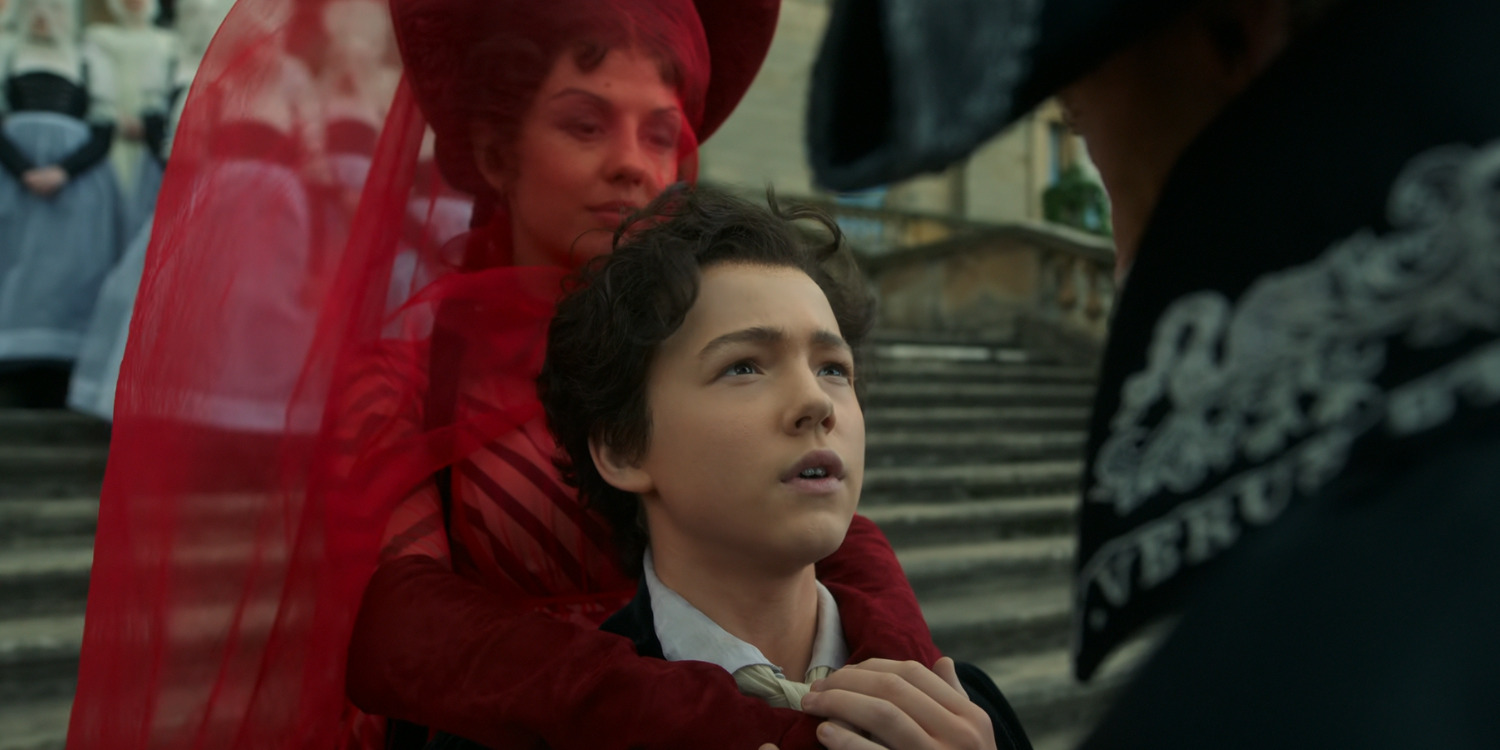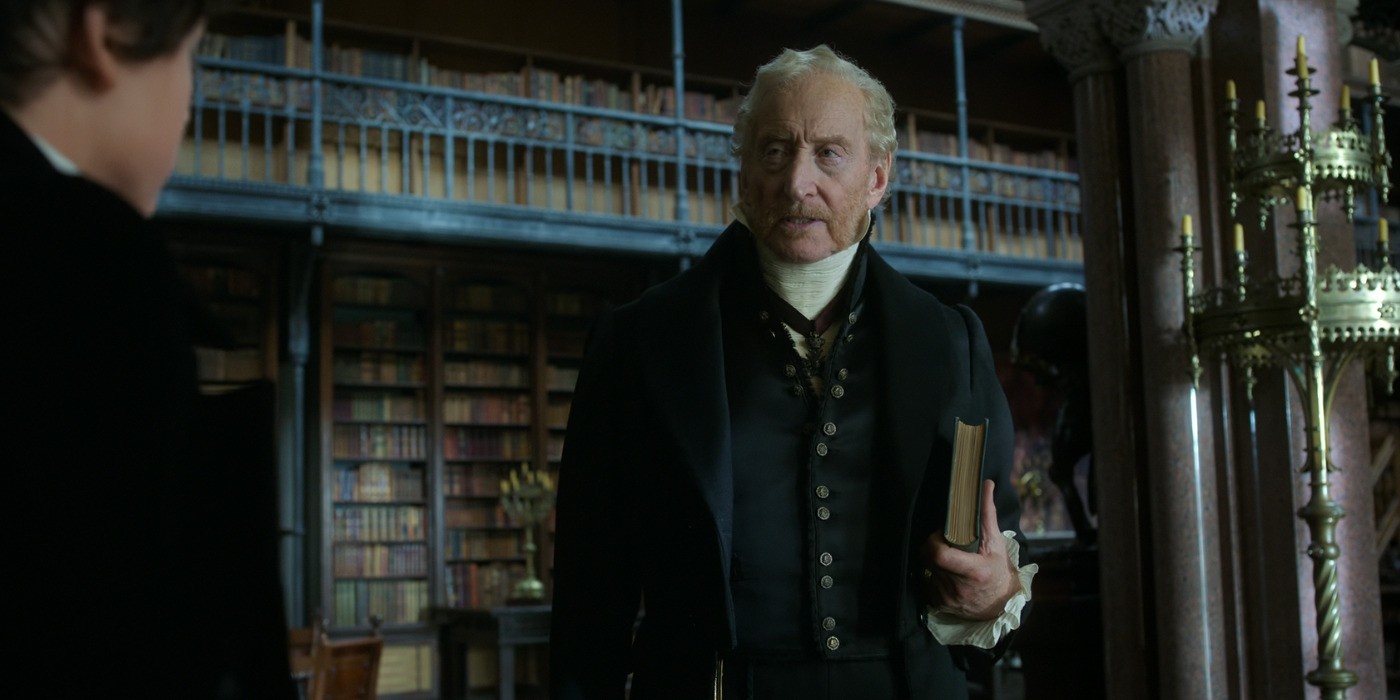Guillermo del Toro’s gothic horror film ‘Frankenstein’ adapts Mary Shelley’s eponymous novel with enthralling visuals and bewitching nuance. The story itself revolves around the titular Victor Frankenstein, a scientist who is possessed by the ambition to conquer death. In his attempt to do so, he ends up creating a monstrous man, who forces the maker to reckon with his own humanity. However, Victor’s infatuation with life and death begins much sooner than his galvanic experiments, going all the way back to his childhood. The scientist grows up in a grand estate, with an exceptional but cold surgeon for a father, and a mother who remains his sole source of love and comfort. Naturally, losing marks the young boy in indelible ways, setting him up for a lifetime of duelling with the brutal inevitability of death. Additionally, the loss further darkens his relationship with his father, Leopold, whom he blames for his mother’s death. As a result, viewers are bound to grow curious about the real fate of Claire Frankenstein and her husband’s possible hand in it. SPOILERS AHEAD!
Claire Passes Away While Giving Birth to Victor’s Younger Brother
Leopold Frankenstein’s marriage to Claire is mostly an affair of convenience rather than romance. The former has ambitions of greatness, and the latter has a dowry and an estate to support it. As such, there is no love lost between the spouses. This air of emotional indifference extends between Leopold and his firstborn, Victor. Still, since the boy bears his name, the surgeon at least attempts to shape him into an intelligent mind that can hold the potential for significance. He teaches Victor about human anatomy and biology, and frequently doles out uncaring physical violence as punishment during their sessions. Similarly, his relationship with Claire also remains tainted.

Leopold is rarely at the estate, spending most of his time away and absent. When he does return home, he exercises an aggressive amount of control, even deciding what his wife should and shouldn’t eat. Furthermore, the arguments between the couple remain frequent, cementing the dysfunctional nature of their marriage. For the most part, it seems their only shared concerns stem from the estate and their children. As such, when a pregnant Claire, near her due date, faces some painful and bloody complications, Leopold quickly rushes to her aid. One of the household wards is turned into a delivery room, where Claire’s husband, one of the best surgeons in town, oversees her treatment. Yet, even he can’t save his wife from the clutches of death. In the end, the baby, William Frankenstein, survives, but Claire dies in childbirth.
Victor’s Paranoia and Grief Over Claire’s Death Drive His Narrative Forward
Claire’s death introduces a jarring new reality for the Frankenstein family. It takes away the most important person from Victor’s life, sending him on an impassioned downward spiral about the nature of life and death. Meanwhile, it grants Leopold a twisted freedom, wherein his house is no longer cohabited by a partner he detests. Moreover, it brings him William, his younger son, who becomes the apple of the surgeon’s eye. All the fatherly love he refused to muster up for Victor now comes out in drones for his younger brother. The older son, still drowning in his grief for years to come, witnesses all of this unfold. For the same reason, he begins to grow suspicious of his father. The fact that even the supposedly greatest surgeon in the world couldn’t save his own wife’s life seems impossible to the kid.

In fact, Victor even confronts his father about the same on one instance. In turn, Leopold assures him he tried his best to save Claire, but asserts that even he cannot conquer death. This is what sets the young Frankenstein on a lifelong path to overcome that which even his father before him couldn’t. His love and grief for his mother, paired with disdain for his father, become the driving force behind his future endeavors. As for Leopold’s actual involvement in Claire’s death, no clear answer is ever provided for it, either to Victor or the audience. On one hand, it’s easy to write off the son’s suspicion over his father as the anxieties of a young, grieving child. However, the fact of his observations remains. Leopold’s dislike for Claire is evident from the very beginning, and his happiness after her departure is difficult to hide. Consequently, Victor’s concerns aren’t without reason. Ultimately, this ambiguity attached to the scientist’s childhood and Leopold’s character adds to the nuanced, character-focused nature of the story.
Read More: Where Was Netflix’s Frankenstein Filmed?


You must be logged in to post a comment.